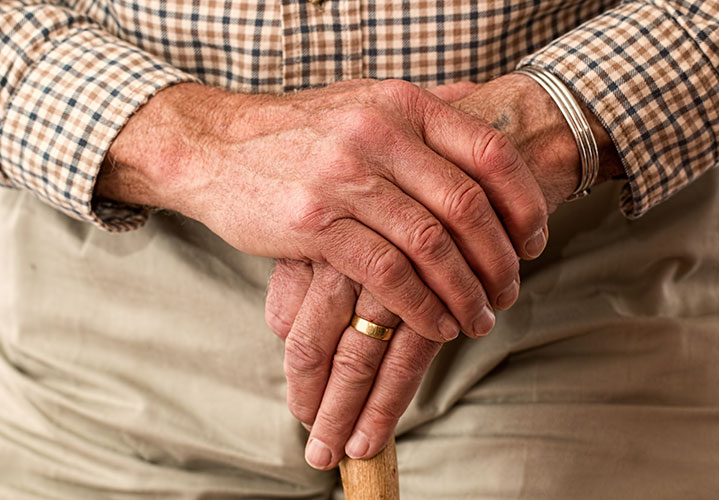
8 ways to avoid financial abuse as you age
From time to time, we hear the sad stories in the media of older people losing all their money to some scam or other. Unfortunately, financial abuse is one of the most common forms of abuse of older people, and it’s on the increase. Below, we share some important tips to help protect yourself or an older person you love from financial abuse and scams.
Financial Abuse is when someone, be it a family member, friend or stranger, misuses someone else’s finances for their own gain. Usually under-reported and under-recognised, financial abuse has serious impacts on the health and wellbeing of older people. “Fear, shame and stigma often prevent older people from reporting abuse,” says Bonnie Robinson, CEO of HBH Senior Living. “Physical and cognitive disabilities can also be another reason it often goes undetected.”
Financial abuse amongst seniors appears to be increasing, in part due to our ageing population and increased longevity. Evidence from New Zealand and overseas reveals that close family members are the most common perpetrators of financial abuse – and their victims are often women or people in poor health (1)
There are a number of ways financial abuse can happen, and often people don’t realise it’s happening, until it’s too late. It might be a family member who asks for a loan and doesn’t pay it back. Or a friend or family member is given access to money to buy things for an older person in aged care, then takes more than was agreed. In other cases, a newfound ‘friend’ builds up a relationship of trust; then asks for money for ‘an emergency’.
Then there are the countless scammers, who develop sophisticated ways to fool older people into believing they are a legitimate organisation. This might include developing a fake website or letterheads that look like the real thing. Unfortunately, these scams do work, and seniors can lose thousands of dollars before they know it.
“One challenge for seniors is that banking is now almost all online and that can be very daunting if you’re not used to it,” says Bonnie. “That’s why it’s so important to learn how to bank online if at all possible and to check your bank accounts regularly, at least weekly, if not daily. These simple checks reduce the risk of financial abuse.”
As you grow older, it’s important to protect yourself and your assets, so we’ve compiled eight top tips to help you or your loved one stay safe:
1. Check your bank accounts regularly
Check your banking and credit card statements regularly and look out for unexpected or unusual account transactions. Learn how to manage your banking online – that way, even if you are handing over some of your control to others, you can see what’s going on and ask questions. And if you have a mobile phone, use you bank’s app it to check your bank account every day. Getting set up and using online banking is not as daunting as you might think – find a local class, talk to your bank or someone you trust to help you get started.
Virtual Village East (a social and support network founded by HBH Senior Living) runs helpful workshops on financial literacy and technology skills for seniors from time to time – you can check out their upcoming events here.
2. Have an EPA in place
Ensure you have an Enduring Power Of Attorney in place for your personal care and welfare, as well as one for your property and other assets. Those appointed will be responsible for making decisions about your personal matters and medical care if you’re unable to make these decisions for yourself. It’s a good idea to appoint a couple of people to execute it, for example, your lawyer and a friend or family member, but make sure they are people you absolutely trust.
3. Don’t share your details
Beware of any requests for your personal details or money. Never send money or give credit card details, online account details or copies of personal documents to anyone you don’t know or trust. It pays to be careful about how much personal information you share on social media sites, as scammers can use this against you. If in doubt, don’t share information.
Practice good computer security, for example using safe passwords that aren’t obvious, changing them regularly and keeping your computer software up to date. If you have difficulty remembering passwords, investigate programmes or apps that keep these safe – you only then have to remember one password to access all your others.
4. If in doubt, don’t open it
Don’t open any suspicious texts, pop-up windows or emails – simply delete them. If you receive a suspicious-looking phone call, email or letter, start by checking if they have a website, then contact them directly and ask if the communication is genuinely from them.
5. Avoid credit cards if you can
Whether you’re living at home or in an aged care or retirement facility, it’s a good idea to use a debit card and keep the balance at a low level, so if someone does some shopping for you, you can track what they’ve spent and they can’t access very much of your funds.
6. Avoid being rushed into decisions
Don’t let anyone pressure you into making a decision quickly, whether it’s about investing, purchasing or donating. Scammers try to get you to act quickly because most scams are obvious when you stop to think about it. Tell them you’ll think about it and get back to them, which gives you time to see if they are genuine or not. If they try to pressure you into making a decision, they are probably not genuine, so just hang up.
7. Make a plan
If you’re moving into a care facility, get your finances set up appropriately. Talk about your needs with your family and have a plan in place to ensure that your care fees are paid and that you’ll have everything you need to be comfortable and well cared for. It pays to be open with family about how finances will work. If one person is going to be in charge of your finances, set up a simple way for them to be accountable for what they spend, for example a monthly report/spreadsheet. This protects you, and them.
8. Make it legal
If you’re lending money to anyone, especially to family members or friends, make sure you have a written agreement and ask an independent lawyer to check it out. Even if it’s your son, daughter or oldest friend, if money is involved, it always pays to protect yourself – and them – by putting it in writing.
Bonnie cites the example of an older person who came to HBH Senior Living for help finding affordable care. “They had agreed to become guarantor on their adult child’s business, but lost everything when the business didn’t work out. They had an informal agreement only with their child, whereas if they’d had a legal agreement, the lawyer would have explained the risks or suggested not doing it at all,” she explains.
“As you get older, you need to be aware that financial abuse can happen, and does happen, so it’s vital that you’re protected,” says Bonnie. “We can be reluctant to talk about money because it is awkward and disrupt relationships with the people you’re often relying on. It can be a delicate subject, but to keep older people safe, families really do need to be able to talk openly about money and how it will be managed if the older family member can no longer do this for themselves.”
With a few simply precautions, and by having open and honest conversations with family, you can do a lot to protect yourself against scams and financial abuse.
(1) Financial abuse of older people in New Zealand – J.A. Davey and J. McKendry, November 2011
